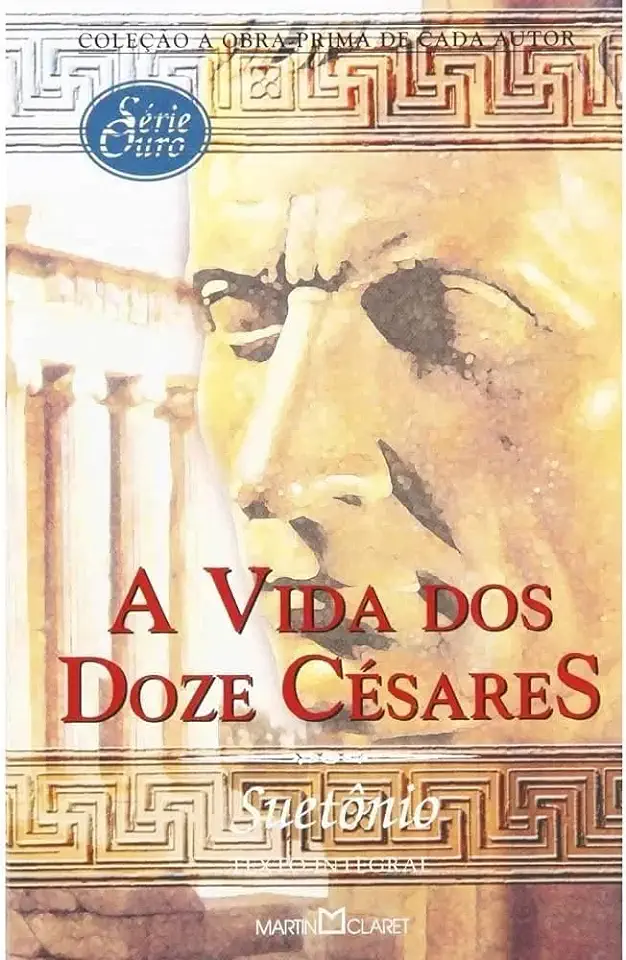
The Twelve Caesars - Suetonius
The Twelve Caesars: A Masterpiece of Ancient Biography
Step into the opulent palaces and witness the scandalous lives of the Roman emperors in Suetonius's captivating masterpiece, "The Twelve Caesars." This extraordinary work of ancient biography offers an unvarnished and often salacious account of the rulers who shaped the destiny of the Roman Empire.
A Journey Through Imperial Excesses
Suetonius, a renowned historian and scholar of the imperial court, takes readers on a riveting journey through the lives of twelve emperors, from Julius Caesar to Domitian. Each biography is a treasure trove of fascinating anecdotes, revealing the emperors' personal quirks, political intrigues, and scandalous escapades.
Julius Caesar: The Conqueror and the Charmer
The book begins with the enigmatic Julius Caesar, a military genius and a charismatic leader. Suetonius paints a vivid portrait of Caesar's triumphs on the battlefield, his political cunning, and his scandalous love affairs. From his conquest of Gaul to his assassination on the Ides of March, Caesar's life is a tale of ambition, power, and betrayal.
Augustus: The First Emperor
Caesar's adopted son and successor, Augustus, emerges as a shrewd and calculating ruler. Suetonius delves into Augustus's rise to power, his consolidation of the empire, and his careful cultivation of a god-like image. Despite his political achievements, Augustus's personal life is marred by family tragedies and scandalous rumors.
Tiberius: The Gloomy Tyrant
Tiberius, Augustus's successor, is portrayed as a brooding and suspicious emperor. Suetonius exposes Tiberius's dark side, revealing his cruelty, paranoia, and sexual perversions. The emperor's retreat to the island of Capri becomes a symbol of his isolation and descent into madness.
Caligula: The Mad Emperor
Caligula, Tiberius's successor, is a notorious figure in Roman history. Suetonius paints a chilling portrait of Caligula's depravity, his sadistic tendencies, and his outrageous behavior. From his incestuous relationships to his declaration of war on the sea, Caligula's reign is a spectacle of madness and excess.
Claudius: The Bumbling Emperor
Claudius, Caligula's uncle and successor, is depicted as a well-intentioned but ineffectual ruler. Suetonius highlights Claudius's physical disabilities, his gullibility, and his dependence on his wives and advisors. Despite his shortcomings, Claudius achieves some notable accomplishments, including the conquest of Britain.
Nero: The Artist and the Tyrant
Nero, Claudius's adopted son and successor, is a complex and contradictory figure. Suetonius portrays Nero as a talented artist and a ruthless tyrant. The emperor's artistic pursuits are juxtaposed with his brutal persecution of Christians and his infamous matricide. Nero's reign ends in chaos and self-destruction.
Galba, Otho, and Vitellius: The Year of the Four Emperors
The year 69 AD witnessed a rapid succession of three emperors: Galba, Otho, and Vitellius. Suetonius provides a concise account of their brief reigns, highlighting their political struggles and untimely deaths. This tumultuous period marks a turning point in Roman history, leading to the rise of the Flavian dynasty.
Vespasian: The Restorer
Vespasian, the founder of the Flavian dynasty, emerges as a capable and pragmatic ruler. Suetonius describes Vespasian's efforts to restore order and stability to the empire after the chaos of the Year of the Four Emperors. Despite his humble origins, Vespasian proves to be a competent administrator and a beloved emperor.
Titus: The Delight of Mankind
Titus, Vespasian's son and successor, is hailed as the "delight of mankind" for his generosity, kindness, and popularity. Suetonius portrays Titus as a benevolent ruler who is deeply loved by his subjects. However, his reign is tragically cut short by illness, leaving the empire in mourning.
Domitian: The Last of the Flavians
Domitian, Titus's brother and successor, is a controversial figure. Suetonius reveals Domitian's paranoia, his persecution of intellectuals, and his desire for absolute power. Despite his flaws, Domitian also undertakes ambitious building projects and expands the empire's frontiers. His assassination marks the end of the Flavian dynasty.
A Timeless Classic of Historical Literature
"The Twelve Caesars" by Suetonius stands as a timeless classic of historical literature. Suetonius's vivid storytelling, his attention to detail, and his unvarnished portrayal of the emperors make this book a must-read for anyone interested in ancient history, biography, or the rise and fall of empires.
Immerse Yourself in the World of Ancient Rome
Join Suetonius on this captivating journey through the lives of the twelve Caesars and discover the grandeur, decadence, and intrigue that defined one of the most powerful empires in history. "The Twelve Caesars" is a literary masterpiece that will transport you back in time and leave you captivated until the very last page.
Enjoyed the summary? Discover all the details and take your reading to the next level — [click here to view the book on Amazon!]